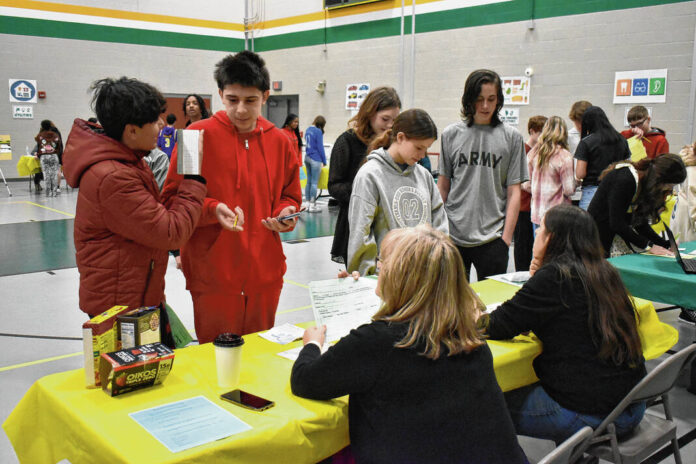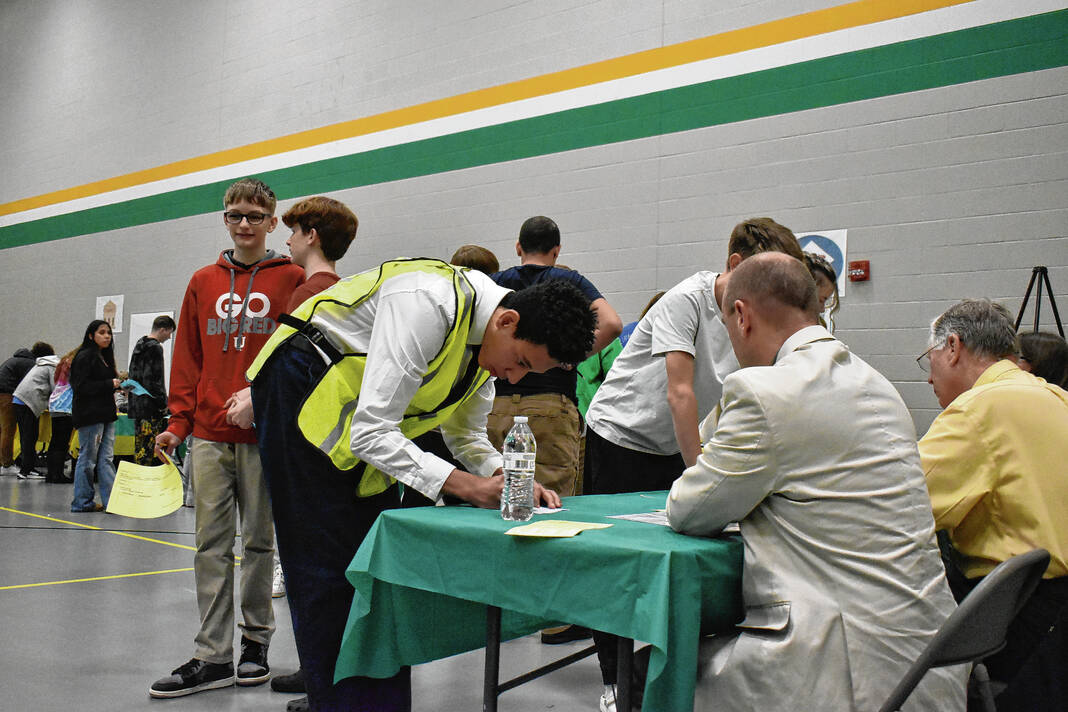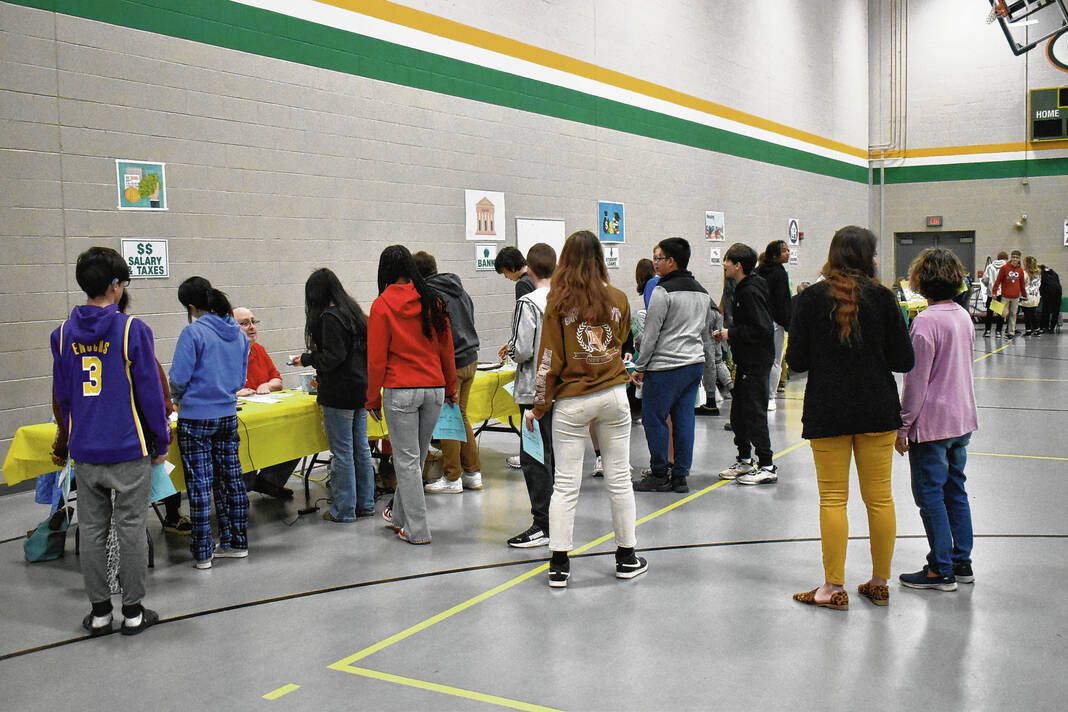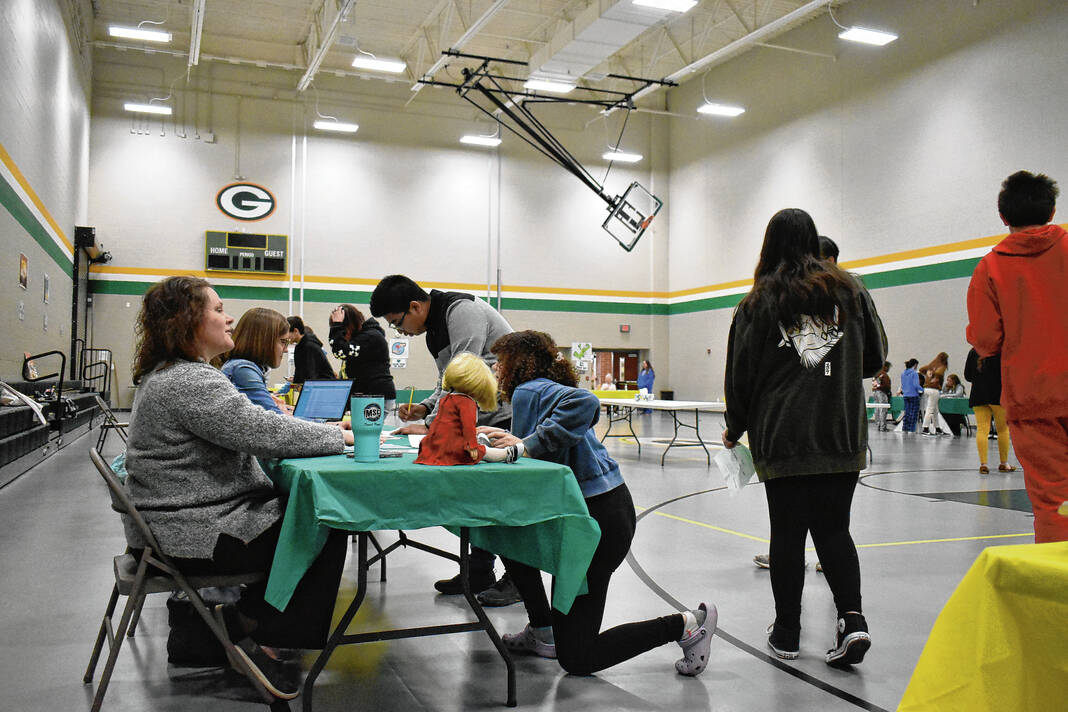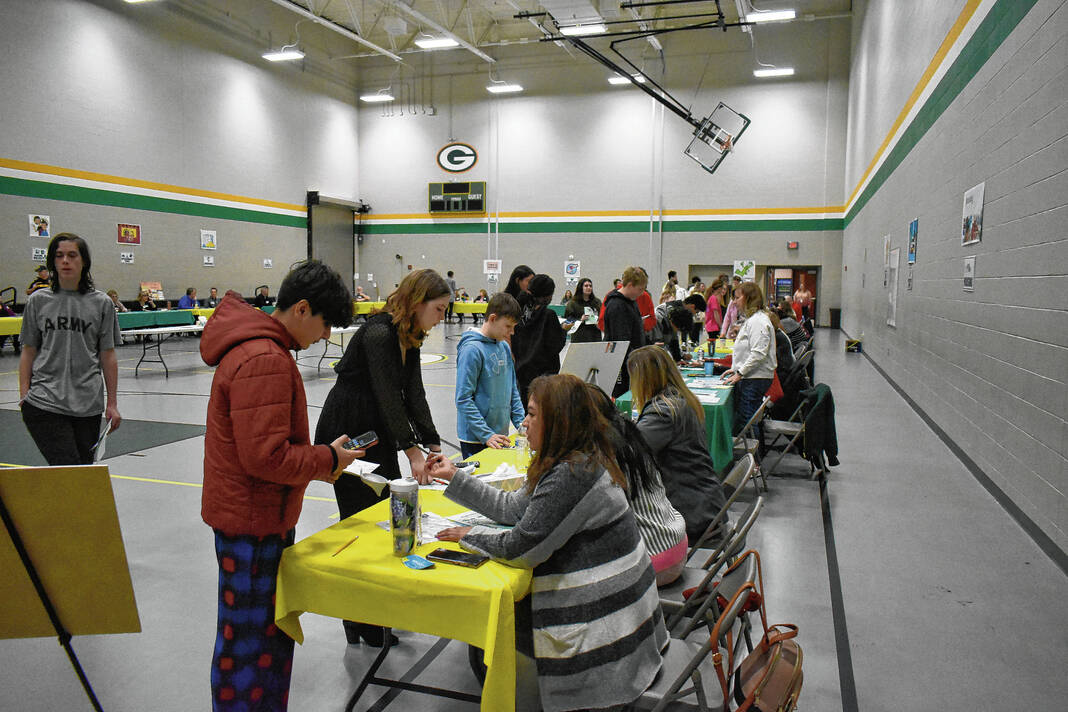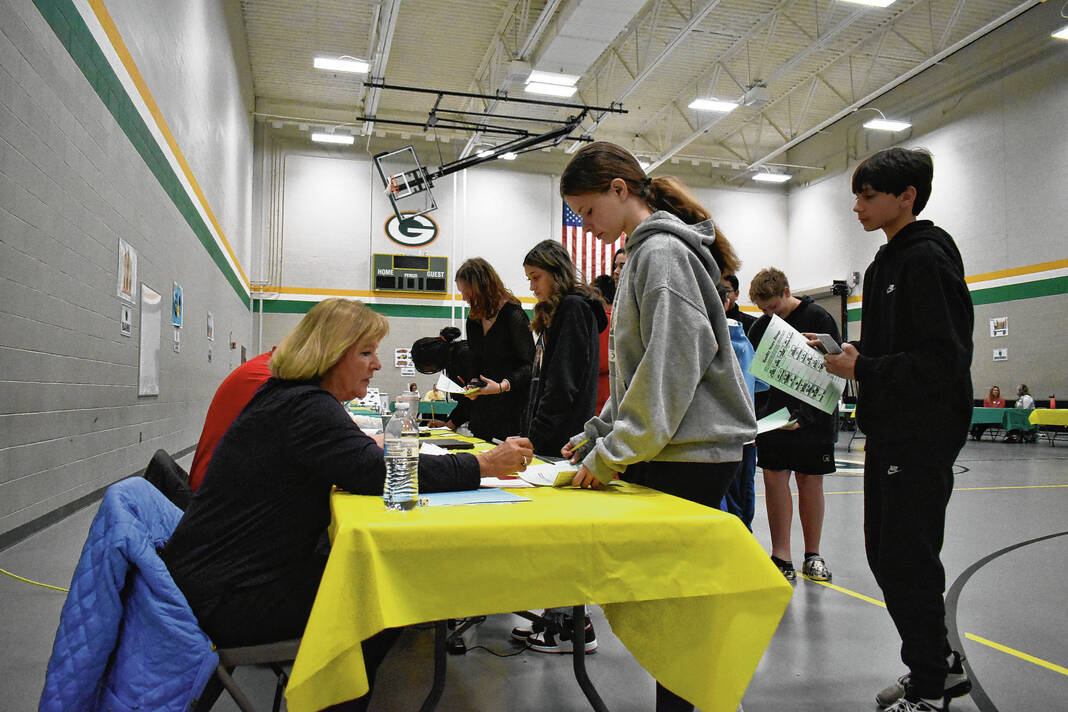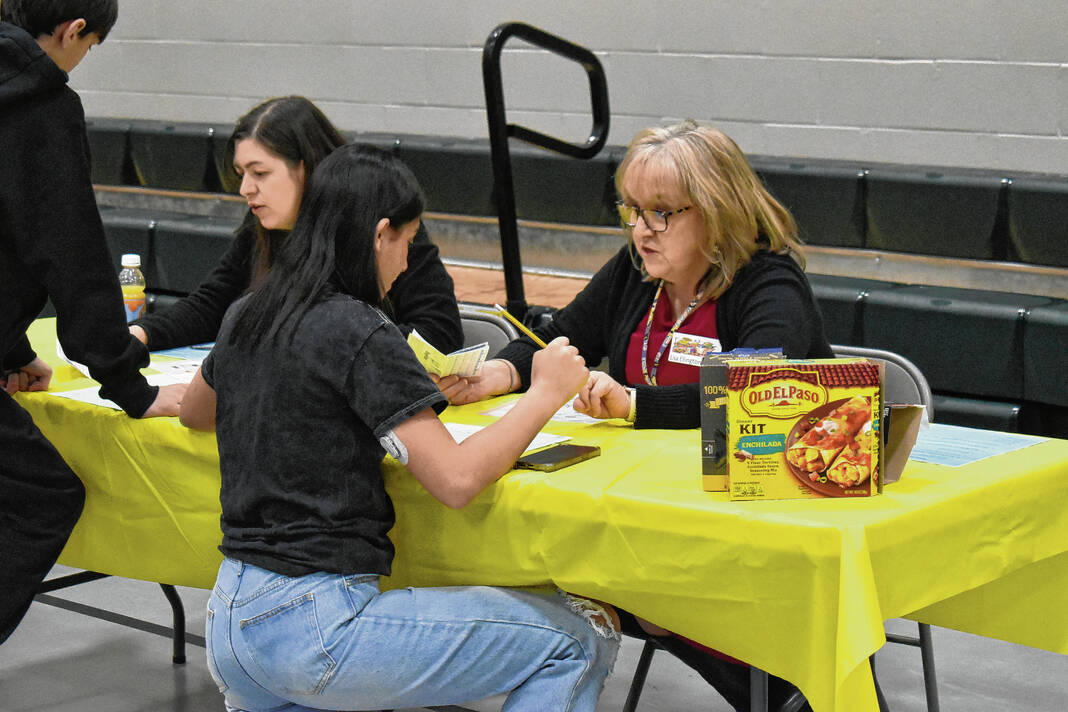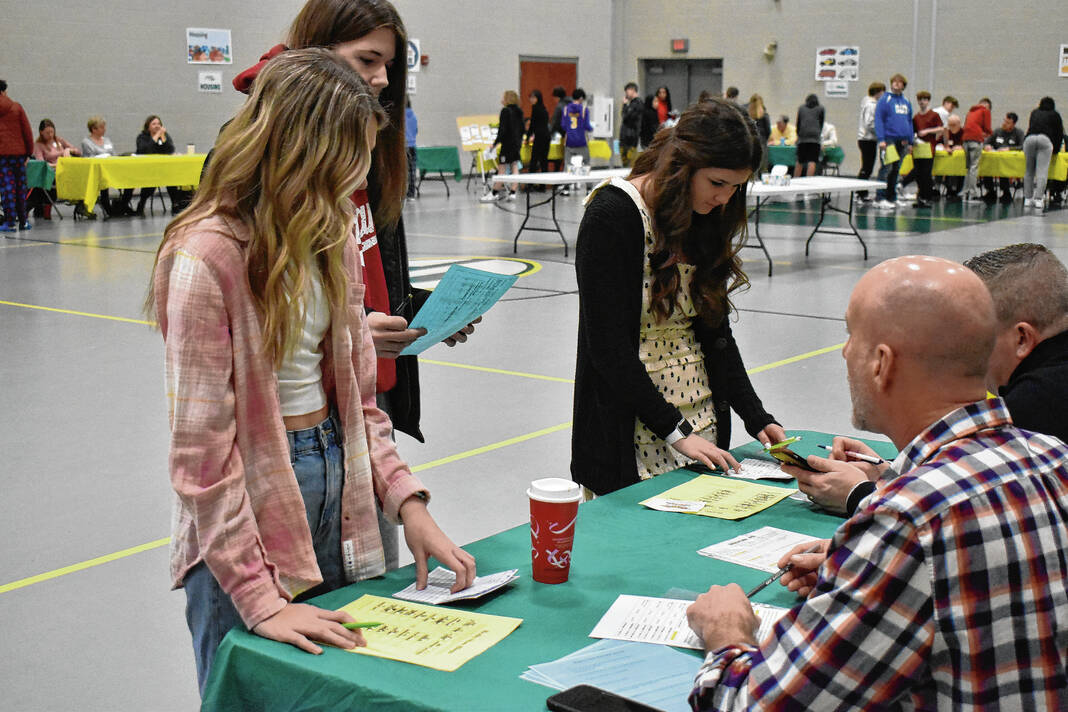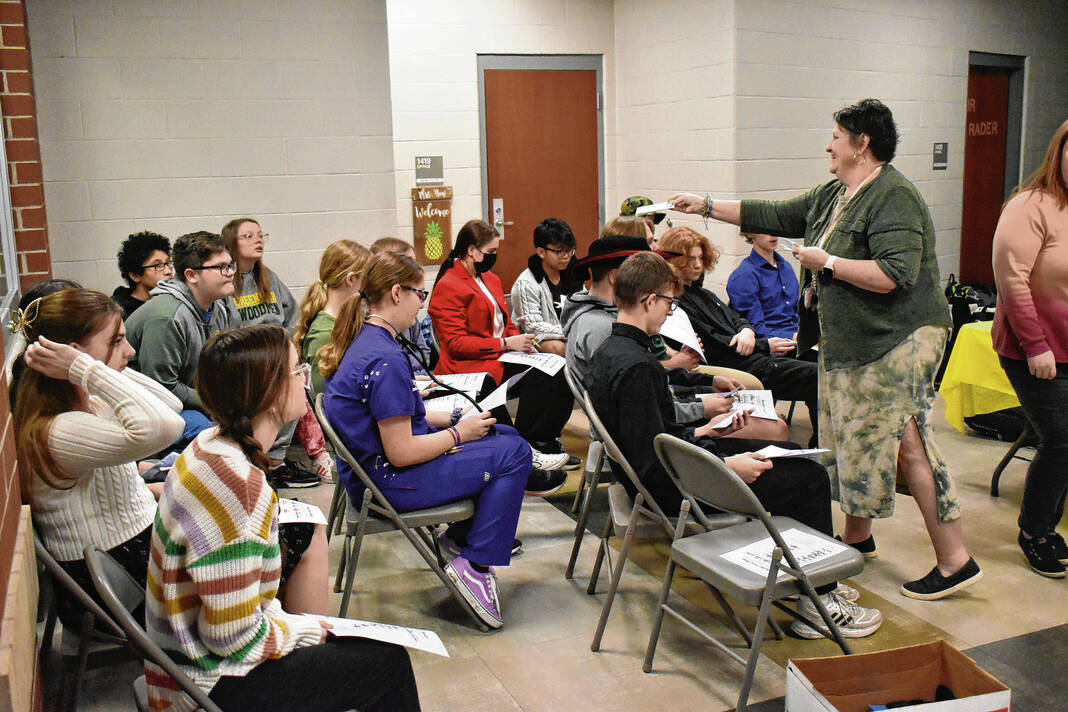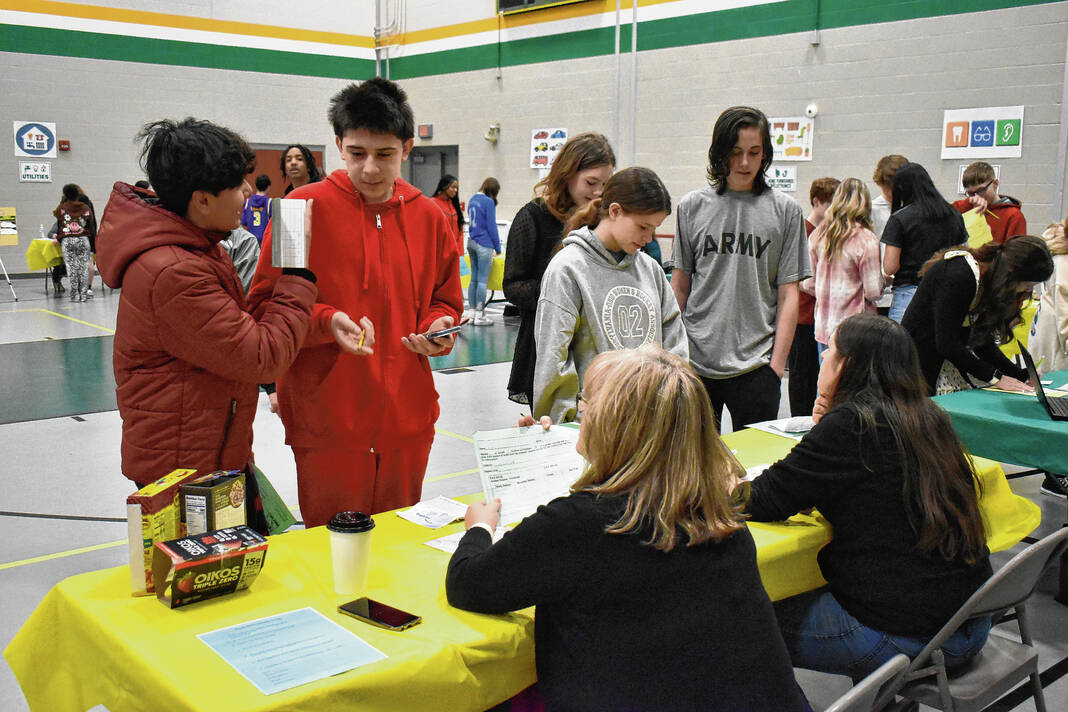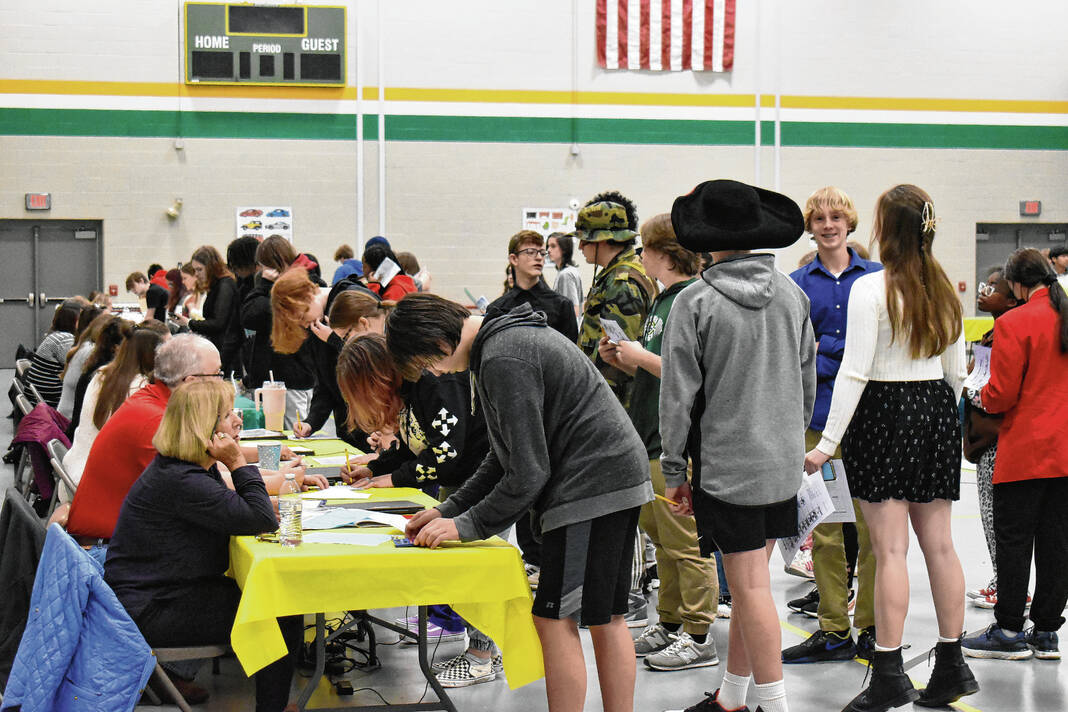Bit by bit, students saw their money disappear.
First, it was student loans, then it was housing. Both child care and health care had to be paid for, along with groceries and insurance. Cars were also needed so they could get to work, and they cost money too.
Eighth-graders at Greenwood Middle School had an opportunity to get a taste of life after school and how much they could earn and spend Thursday morning as part of the school’s annual “Reality Store.” The simulation teaches students about the economic realities of life, and Thursday’s simulation was the first one to take place since before the coronavirus pandemic.
Students selected a job based on their grade-point average and spin a wheel to see if they are married, single, with children or childless. Those who had higher GPAs had higher-paying jobs, and those with lower GPAs had lower-paying jobs for the simulation, said Maureen Hoffman-Wehmeier, family and consumer sciences teacher.
“I’m quick to tell them that your grade-point average does not tie you into a specific job,” Hoffman-Wehmeier said. “You can rise above that, but you need to know now how hard you have to work in order to do exactly what you want to do in life.”
Both the family and consumer sciences class and the business information technology class spent nearly a month teaching students how to use a checkbook register, along with teaching them about credit, savings, banking and careers in advance of the simulation. While using checks is not as common today, it’s still an important skill to teach, Hoffman-Wehmeier said.
“We have told them, ‘You probably won’t use this in real life … You’ll probably do it all electronically. You’ll write very few checks,’” she said. “But we want them to know how to do it.”
On Thursday, the eighth-graders got to try this out as they “became” 28 years old. Groups of students had an hour to try “adulting” by going to various tables staffed by community volunteers representing certain expense categories. These included clothing, groceries, hair and beauty products, pets, utilities and entertainment/travel.
If their salary wasn’t enough and they went into the red with their purchases, they had to downsize or get a second job. Some students had to return to the bank or go to a financial counseling table.
Eighth-grader Colbie Jones said she was surprised at how quickly she ran out of money, and that she came away with a better understanding of budgeting.
“(I’ve learned) to be more careful with spending on certain things that aren’t as important,” she said.
Halfway through one of the morning sessions, eighth-grader Kate Hankins said she luckily hadn’t gone into debt. Several of her friends had though, she said.
“I’m just glad I’m not in that financial state,” Hankins said.
Like Jones, Hankins says she has a better understanding of how to spend her money.
“Now that I’ve partaken in this event, I understand better what to do with my money,” she said.
The simulation would not be possible without community volunteers. Many members of the community came out to help because they believe in Reality Store, Hoffman-Wehmeier said.
“You can see all around how many people in the community have turned out to help because they believe in this,” she said. “It’s such a fine community that works alongside our students.”
Among the volunteers on Thursday were school board members Chad Shaffer and Chris Zaborowsky, and former school staff including former GMS principal Vickie Noblitt and former teacher Nancy Wisley. Noblitt and Wisley, who were manning the check-out table, enjoyed coming back to take part in the simulation, they said.
“We think this is a worthy project,” Noblitt said. “… It’s a good way to feel like you’re still contributing to the success of the school.”
Former guidance counselor Lhea Hesler, who used to be in charge of the Reality Store, said the simulation is a great way to open students’ eyes to what their future could be like.
“It’s kind of an eye-opener of what they want to do and how their GPA affects what career they could choose and how money goes so quickly,” Helser said. “… It gets them to think about what they want to do and that they need to do well at school if they want a good career to pay for the things they want.”
The feedback from students has always been positive, Hesler said.
“Some of them realize, ‘Oh, I got to make better grades’ or ‘Oh, I need to thank my parents for all the stuff they buy for me. I didn’t know everything was so expensive.’ It’s a good eye-opener,” she said.
Before the simulation had begun, eighth-grader Lucas Crouch had a realization he needed to have better grades to get the job he wanted. Because of his GPA, he was assigned a job on the lower end of the scale.
“That made me realize that it could end up being that my job would actually not be the best,” Crouch said. “I was like, ‘I need to step up my game and start trying more because I used to be an all-honors student’ and I just sort of gave up.”
Now Crouch has made it to the point where he’s on top of everything and wants to get to a good place, he said.
“I want to have a successful life,” he said. “I don’t want to flop because I know I can do better.”


